What Is Wrongful Termination?
Wrongful termination happens when an employer fires an employee for an illegal reason—such as retaliation or discrimination. If this sounds like your situation, Kaplan Employment Law is here to listen, advocate, and fight for your rights.
- Retaliation: It’s illegal for an employer to fire you for engaging in protected activity, like reporting workplace discrimination or sexual harassment.
- Disparate Treatment: If your termination was motivated by bias against your protected class—such as race, gender, disability, or national origin—it may be wrongful termination.
If your firing was based on retaliation or discrimination, it was not legal—and you don’t have to face it alone. Contact Kaplan Employment Law to fight for your rights.
Was My Firing Legal?
Not all firings that feel unfair are illegal. At Kaplan Employment Law, we understand the frustration of losing a job, but legal recourse exists only when a termination is based on a protected class or because you engaged in a protected activity.
Examples of firings that may feel unfair but are not illegal:
- Your supervisor simply disliked you.
- Office politics or personality conflicts led to your dismissal.
- You were fired for poor performance or attendance.
- You weren’t given a warning before termination.
- Your employer didn’t provide a reason for firing you.
But if the real reason behind your firing was retaliation or discrimination, you may have a wrongful termination claim. Speak with Kaplan Employment Law to explore your legal options
Wrongful Termination Claims in Florida Based on Retaliation
Retaliation has no place in the workplace. Yet many employees are fired after standing up for their rights. If your employer terminated you after engaging in protected activity, you may have a retaliation-based wrongful termination claim.
Here’s an overview of the most common laws that protect an employee from wrongful termination based on retaliation.
Title VII of the Civil Rights Act of 1964
Title VII of the Civil Rights Act makes it illegal to fire an employee for reporting discrimination based on race, color, religion, sex (including sexual orientation and gender identity), or national origin. A Title VII retaliations lawyer can help you file a lawsuit if you were filed for reporting discrimination under Title VII.
Florida Civil Rights Act of 1991 (FCRA)
The Florida Civil Rights Act (FCRA) provides the same protections as Title VII under Florida law.
Americans with Disabilities Act (ADA-Related Claims)
The Americans with Disabilities Act (ADA) protects employees from termination after requesting reasonable accommodations for a disability. If you were fired after asking for accommodations, you may have a valid claim under the ADA with the help of a wrongful termination lawyer.
Family and Medical Leave Act (FMLA Retaliation)
Under the FMLA, eligible employees are entitled to take unpaid leave for specific family and medical reasons, including serious medical conditions and childbirth.
If you were terminated for taking or requesting FMLA leave, you may have a case for wrongful termination. An FMLA protections lawyer at Kaplan Employment Law can help determine whether your rights were violated and what options you have to hold your employer accountable.
Workers’ Compensation Retaliation (Workers’ Compensation Retaliation)
Florida law prohibits employers from retaliating against employees who file workers’ compensation claims for injuries sustained on the job.
If you were terminated because you filed a workers’ compensation claim, you may be able to pursue a wrongful termination case based on retaliation. Employees should never have to choose between reporting an injury and keeping their job, and our workers’ compensation lawyers are here to protect your rights.
Fair Labor Standards Act (FLSA Retaliation)
The FLSA protects employees’ rights related to minimum wage, overtime pay, and more. If you were fired for reporting FLSA violations—such as unpaid overtime or improper tip pooling—you may have a wrongful termination case under this law. Employers are not legally allowed to terminate employees who bring attention to wage violations.
Your story matters, and Kaplan Employment Law’s FLSA lawyers will fight to ensure justice is served.
Does At-Will Employment Affect Wrongful Termination Claims?
Florida is an at-will employment state, meaning employers can fire employees for any reason—or no reason. That said, there are exceptions: terminations motivated by discrimination or retaliation are illegal. Even in an at-will state like Florida, an employer cannot fire you because of your protected class or for engaging in a protected activity under the law.
If you suspect your termination violated your rights, an experienced wrongful termination lawyer at Kaplan Employment Law can review your claim and help you seek justice.
How Do I Prove a Wrongful Termination Claim?
Proving wrongful termination means showing that your firing was based not on performance or company policy but on retaliation or discrimination.
Proving Wrongful Termination Based on Retaliation
To establish a retaliation-based wrongful termination claim, you must present evidence that your employer fired you because you engaged in protected activity, such as reporting discrimination, sexual harassment, or requesting medical leave.
- Document Your Complaint: Keep records of emails, HR reports, or formal complaints proving you engaged in protected activity.
- Look for Retaliation Patterns: Were you suddenly given poor performance reviews, demoted, or treated unfairly after your complaint?
- Show Employer Knowledge: Your employer must have been aware of your complaint, and that complaint must be the motivation for firing you.
Evidence is key to a successful claim. Kaplan Employment Law will help you gather the proof needed to build a strong case.
Proving Wrongful Termination Based on Disparate Treatment
Disparate treatment occurs when your employer fires you because of who you are, rather than simply reporting discrimination. Disparate treatment occurs when employees of a different protected class are treated differently (for instance, not fired) under similar circumstances.
- Compare Your Treatment to Others: Identify coworkers in similar roles who were not fired or disciplined despite making the same violation, or similar performance.
- Identify Unequal Enforcement of Rules: If company policies are only applied against certain groups or individuals while others get a pass, it could indicate discrimination.
- Find Evidence of Discriminatory Bias: Look for emails, comments, or past behavior from decision-makers that suggest bias against people of your race, gender, age, disability, or other protected characteristic.
If you suspect your termination was illegal, Attorney Brett Kaplan can help you collect the necessary evidence to make a strong case.
Employer Defenses Against Wrongful Termination Claims
Employers often try to justify firings with legitimate-sounding reasons, such as poor performance or downsizing. But if their reasoning doesn’t add up, it could be a pretext for wrongful termination. Look at for things like:
- Sudden Performance Issues: You received excellent reviews before your complaint, but after speaking up, your employer started documenting problems.
- Hostility After Complaining: You are harassed because you complained.
- Inconsistent Policy Enforcement: Other employees violated company rules but weren’t fired—but you were.
- Contradictory Explanations: Your employer keeps changing their reason for firing you.
To overcome these defenses, it’s crucial to show that their stated reasons are pretextual—excuses masking unlawful motives. Evidence like sudden hostility after protected activity or inconsistencies in their explanation can reveal the truth.
At Kaplan Employment Law, we expose these tactics and fight back against employers who try to cover up wrongful termination.
Filing a Wrongful Termination Claim in Florida
Understanding the EEOC Process in Wrongful Termination Claims
The process for a wrongful termination case often begin with filing a charge of discrimination with the Equal Employment Opportunity Commission. The charge of discrimination is a critical filing that lays the foundation for your claims, and will be scrutinized during litigation. At Kaplan Employment Law, we ensure your story is told and every possible legal theory of wrongful termination is articulated in the EEOC charge. This process is required for claims under Title VII and the ADA.
During the EEOC process, efforts will be made to resolve your case through negotiation or mediation. But at Kaplan Employment Law, we don’t settle for less than full value. If an acceptable resolution cannot be reached, we will file your case in court once the EEOC issues a right to sue letter.
That said, not all claims require an EEOC charge. Claims for workers’ compensation retaliation, FMLA retaliation, or those under Section 1981 (race-based discrimination and retaliation) can be filed directly in court without going through the EEOC. Let Kaplan Employment Law guide you through this process and fight for your rights.
Pursuing a State-Based Wrongful Termination Claim
Florida also provides specific protections under the Florida Civil Rights Act of 1992 (FCRA). Through a dual-filing process, your charge with the EEOC can also be automatically filed with the Florida Commission on Human Relations (FCHR). This is required to pursue claims under the FCRA. This dual filing expands the options available to you by allowing you to pursue your claim in state or federal court. At Kaplan Employment Law, we ensure that this critical step is completed accurately and strategically.
Other Legal Options for Wrongful Termination Claims
Claims for Workers’ compensation retaliation, FMLA retaliation, or those under Section 1981 (race-based discrimination and retaliation) can be filed directly in court without involving the EEOC. Wrongful termination also claims under the FLSA do not require filing with the EEOC.
At Kaplan Employment Law, your story matters, and your fight for justice is our fight. Let us help you navigate the process and secure the justice you deserve.
What Compensation Can I Get for Wrongful Termination?
If your employer illegally fired you, you may be entitled to significant compensation under Florida and federal law.
- Lost Wages: Recover back pay, bonuses, and benefits lost due to wrongful termination.
- Emotional Distress Damages: Compensation for mental and emotional suffering caused by the termination.
- Punitive Damages: In cases of severe misconduct, courts may penalize employers by awarding additional compensation.
- Attorney’s Fees & Court Costs: Employers can be required to cover your legal expenses if you win at trial.
Kaplan Employment Law is committed to securing maximum compensation for wrongful termination victims. Our wrongful termination lawyers in Florida fight for every dollar you deserve.











